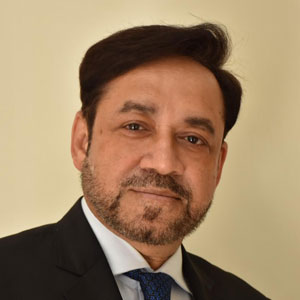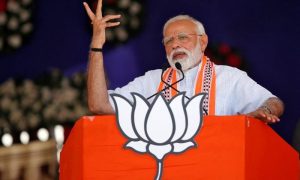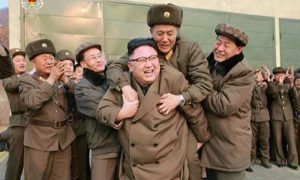Soon after I began my career, I witnessed a colleague engaging in blatant corruption with complete disregard for its consequences. He would laugh off all warnings, confident that his wealth and connections would protect him. He would eventually see his downfall, not from his own actions but from crossing those in power.
There is a widely held belief that success is achieved by aligning oneself with power. This mindset is prevalent in both private and public sectors and continues to lead many astray. The cold, hard truth is that every untouchable eventually ends up being removed, regardless of how much they’ve cheated or how many boots they’ve licked. Appeasing the powerful and enriching oneself by going against moral norms and laws only takes one so far.
It is unfortunate that public opinion when it comes to condemning what is wrong has generally grown weaker and weaker since the late 1980s. Instead, one now finds many who are quite eager to participate in unlawful activities. The idea that ‘anything goes’ has become rather acceptable.
In the past, delinquent officers would be suspended for wrongdoing. Now, however, the sword usually swings against those in the lower cadres. The senior officers are typically appointed on the whims of chief executives, so they are merely transferred when their misconduct becomes too difficult to ignore. They are later readjusted to even better positions as a reward for their loyalty. The head of the organisation has rotted away as a result.
Saner elements within the police forces have been pleading consistently for correction and reform. Though there was initially some progress, we have recently returned to square one. Professionalism has fallen to its lowest level during our fraught times, and it is only a handful of Samaritan cops that are keeping us all afloat.
In the run-up to the recent elections, law enforcement was criticised widely on social media for its brutish practices, which included perpetrating violence on already vulnerable groups. As political polarisation grew, daggers were drawn, illegal actions justified, and what is atrocity was deemed acceptable. With those responsible hell-bent on fulfilling their personal agendas, the expectations from law enforcers, considered a tool of government, were horrendous.
In such scenarios, officers often assert that they simply acted in accordance with orders. However, this only indicates a lack of leadership and the absence of any sense of self-accountability. An important principle established through the Nuremberg trials is that individuals are responsible for following immoral orders. We must, therefore, start holding everyone who perpetrates an illegality to account.
There are too many men and women today in positions of power who take joy in cruelty and then blame others for their actions. The process must start with the political executives, bureaucrats, and even police officers who issue unlawful orders, but everyone who obeys such illegalities must also be brought to book.
Our short memory has led us to forget and absolve those responsible for the May 12 Karachi massacre, the Faizabad Dharna, the mess-up at Lal Masjid, APS Peshawar, Sahiwal encounter, custodial killings in Balochistan, and countless other incidents, including several high-profile murders. There was a need to relearn and do things differently after each of these incidents.
Unfortunately, on most accounts, the major failings of law enforcement were hushed up. Crooked elements became more brazen as a result. Side by side, bad policies and continuous interference infantilised law enforcement even further.
Can we choose progress instead of letting law enforcement continue to decay? Much worse has happened in other states, but there is consolation in their response when they resolve to prevent a repeat of the same tragedy. In our case, we appear to have given up. The rule of law and justice no longer seem relevant to our people.
Despite much pleading from the police hierarchy for urgent reforms, no durable action has been taken. Even though a variety of reform models are available, we generally choose expediency and ad hoc gains. If this situation is allowed to continue, public suffering is inevitable. In the hands of someone irrational and criminally inclined, a force otherwise meant for protecting others can do much harm. The key, therefore, lies in first changing the mindset of those in charge.
At the same time, we must also remember that law enforcement is expected to embody societal values as it steers through complex power dynamics. How can we expect officers to be fundamentally different from the society they serve? This question is especially pertinent when considering that everyone, to some extent, breaks the law while demanding strict adherence from others. Ultimately, nurturing a culture of integrity is crucial, as it will guide officers to serve the greater good. Only then can we bridge the gap between societal expectations and the realities of law enforcement and create a more just society.
When law enforcement is compromised, society devolves into a state of nature, and the rule of law gives way to the law of the jungle. To some, this may be preferable. For everyone else, it is chaos. This descent into chaos is facilitated by the inaction of good men, for ‘the only thing necessary for the triumph of evil is for good men to do nothing’.
It is time for law enforcers to stand up and recall the oath and promise they made on the day they passed out from their academies. By simply holding themselves to a higher standard while understanding that they are always accountable for their actions, they can improve considerably in a very short time. They need to rebuild their relationship with the people they are supposed to serve. Social stability depends on it.
2024 stands out as one of the most glaring examples of professional and ethical erosion in election policing. Electoral outcomes cast a shadow on their legitimacy as a result of institutional weaknesses and unchecked power dynamics. Will law enforcement continue its downward spiral, causing societal chaos and injustice?
Or will decisive action be taken to restore integrity, bridging the gap, and bringing new levels of accountability and fairness? Will the hotch potch alliance choose wisely in the coming days to determine the future of democratic policing.
The writer is former federal secretary/IGP- PhD in Politics and IR-teaching Law and Philosophy at Universities. He tweets@Kaleemimam. Email:[email protected]: fb@syedkaleemimam






















